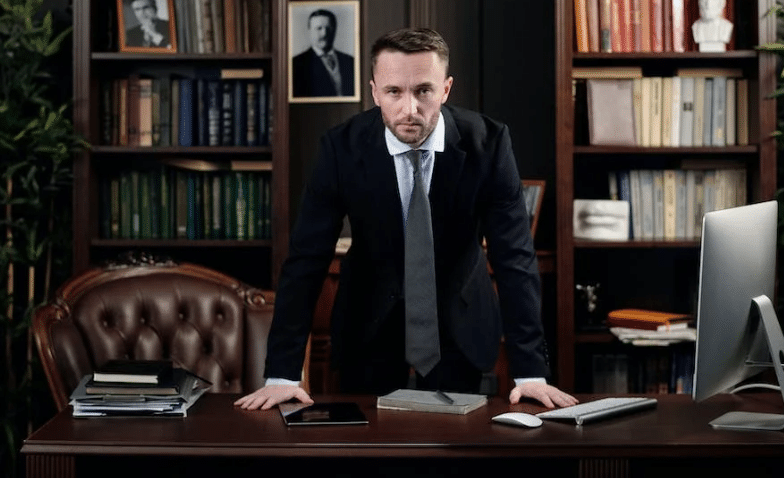Right to Attorney Prior to Taking Chemical Test

As a practical matter, no, you may not talk to an attorney prior to a chemical test. The reason is because, at that juncture, a person is already in handcuffs and taken to the breath testing facility, wherever that happens to be in their jurisdiction, and not allowed to talk to an attorney.
However, for the sake of argument, let us say that they were. This is what the lawyer wants to tell the person: what is the truth versus the law, which says that an attorney cannot tell the person that even though it is true.
As a lawyer on the defense side, what you want to say regarding any type of request for fingerprints, voice stress analysis, polygraphs, breath tests, drug tests, field sobriety exercises, or anything else, is to say nothing at all. The best example of this is a prosecutor who told me the story of a man pulled over for a DUI. The man had his driver’s license ready when the cop came to his window. The cop started asking a series of questions: “Where were you going? Why are you driving so fast? Where are you coming from?” The guy did nothing but hold his license and point to it. Finally, the cop said, “You are not going to say anything, are you?” The guy just pointed at his license. He did not say a word, so there was no way an officer could say that his speech was slurred. He did not take a breath test, and he did not perform any field sobriety exercises. Therefore, with the body cam, all you could see would be somebody sitting there pointing at their license, not saying a word. From a defense perspective, that is the perfect way to handle a DUI stop and a request for a breath test.
We know that if somebody takes the breath test and blows twin zeros (not a drop of alcohol in their body), they are going to be told that they have to take the whiz quiz and pee in a cup. If they refuse to pee in a cup because they have already given a breath test, they are going to be charged with DUI refusal. If they do pee in a cup, they are going to be charged with a DUI because they are not going to get the results for some time. Therefore, either way, someone is going to get charged with a DUI. However, the law says that if somebody asks, “Do I have to give a breath test?” as an attorney, you cannot tell them, “Shut up, don’t make statements, and don’t take a breath test.” You are not allowed to tell them not to take a breath test, even though you know that if people do exactly what I described earlier, they are more likely to have an acquittal because they are not giving evidence against themselves.
Legal precedents
Implied Consent Law in Missouri:
- Implied consent laws dictate that drivers must comply with chemical DUI tests (such as breath, blood, or urine samples) if lawfully arrested for driving under the influence.
- By operating a vehicle in Missouri, individuals automatically agree to these testing procedures when suspected of DUI.
- Refusing to undergo chemical testing after a lawful arrest can result in administrative penalties, including license suspension, even before a criminal conviction.
- While refusal doesn’t directly impact criminal proceedings initially, it can still have consequences from the Department of Motor Vehicles.
Consequences of Refusing Chemical Tests:
- License Suspension: A first-time refusal often leads to a one-year license suspension, with longer suspensions for subsequent refusals within ten years.
- Impact on Criminal Case: Refusal cannot be used as evidence against a defendant at trial due to constitutional protections against self-incrimination. However, prosecutors may still use it as evidence, and jurors might draw negative conclusions about the refusal.
Suppressing Chemical Test Results:
- Motion to Suppress: This legal strategy challenges the admissibility of evidence, including chemical test results.
- Success hinges on demonstrating improper test conduct or unreliable results.
- A strong defense can argue flaws in the testing process or the test’s accura
How Often Should I Meet With My Attorney in the First 30 Days After an Arrest?
Frequent communication with your attorney during the initial 30 days after an arrest is crucial. Here’s why:
-
Case Assessment and Strategy Development:
- In the early days, your attorney will assess the details of your case, including evidence, witness statements, and police reports.
- Regular meetings allow for a comprehensive understanding of your situation, enabling your attorney to develop a tailored defense strategy.
-
Understanding Legal Processes:
- DUI cases involve various legal steps, such as arraignment, pre-trial motions, and discovery.
- Frequent consultations ensure you stay informed about court dates, deadlines, and necessary actions.
-
Building Trust and Confidence:
Establishing a strong attorney-client relationship requires consistent communication.
Regular meetings allow you to discuss concerns, ask questions, and gain confidence in your legal representation.
-
Adapting to New Information:
- As your case progresses, new information may emerge (e.g., witness statements, lab results).
- Frequent meetings help your attorney adjust the defense strategy based on these developments.
The Process After Submitting to or Refusing a Chemical Test
-
Submitting to a Chemical Test:
- If you submit to a breath, blood, or urine test, the results become evidence.
- These results can impact both administrative (license suspension) and criminal proceedings.
- Your attorney will review the test procedures and accuracy, looking for any potential flaws.
-
Refusing a Chemical Test:
- Refusal can lead to administrative penalties (license suspension) but cannot be used against you in court.
- However, prosecutors may still use it as evidence indirectly (e.g., arguing consciousness of guilt).
- Your attorney will explore defenses related to the refusal, such as improper advisements or constitutional issues.
Remember, each case is unique, and consulting with an experienced DUI attorney promptly ensures the best possible outcome. If you have further questions or need additional guidance, feel free to ask!
Conclusion
So, there you have it—the intricate web of rights, laws, and strategic choices surrounding your interaction with law enforcement during a DUI stop. Remember, silence isn’t just golden; it’s often your best defense.











Recent Comments